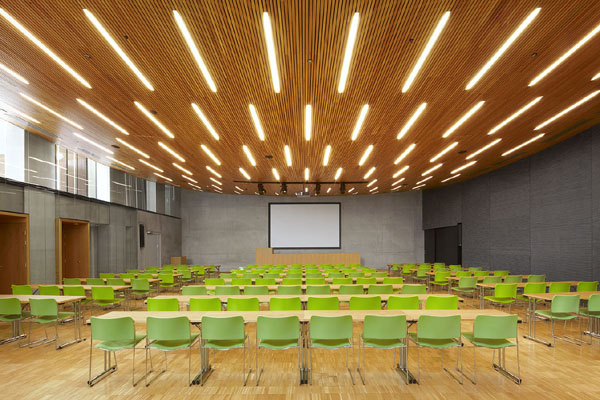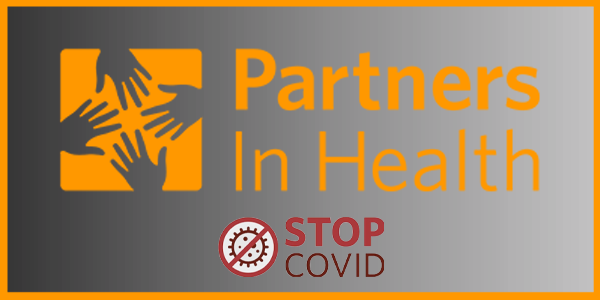The Fall 2020 Term: Open, Closed, Online? (updated)
California State University, Fullerton has announced that it is planning for all Fall 2020 courses to be offered online only, at least at the start of the term, according to the Los Angeles Times (via Inside Higher Ed), though it may change those plans if circumstances allow.
Stanford University and Boston University are considering cancelling all courses for Fall 2020 and beginning the academic year in January 2021, though no decisions have been made.
If your university or college has announced plans for Fall 2020, or is considering some interesting options, let us know.
UPDATE (4/27/2020): In an op-ed in The New York Times, Christina Paxson, the president of Brown University, stresses the importance of universities reopening in the fall and sketches what she thinks would need to happen:
Testing is an absolute prerequisite. All campuses must be able to conduct rapid testing for the coronavirus for all students, when they first arrive on campus and at regular intervals throughout the year. Testing only those with symptoms will not be sufficient. We now know that many people who have the disease are asymptomatic. Regular testing is the only way to prevent the disease from spreading silently through dormitories and classrooms.
Traditional contact tracing is not sufficient on a college campus, where students may not know who they sat next to in a lecture or attended a party with. Digital technology can help. Several states are working to adapt mobile apps created by private companies to trace the spread of disease, and colleges and universities can play a role by collaborating with their state health departments and rolling out tracing technology on their campuses.
Testing and tracing will be useful only if students who are ill or who have been exposed to the virus can be separated from others. Traditional dormitories with shared bedrooms and bathrooms are not adequate. Setting aside appropriate spaces for isolation and quarantine (e.g. hotel rooms) may be costly, but necessary. It will also be necessary to ensure that students abide by the rigorous requirements of isolation and quarantine.
Aggressive testing, technology-enabled contact tracing and requirements for isolation and quarantine are likely to raise concerns about threats to civil liberty, an ideal that is rightly prized on college campuses. Administrators, faculty and students will have to grapple with whether the benefits of a heavy-handed approach to public health are worth it. In my view, if this is what it takes to safely reopen our campuses, and provided that students’ privacy is scrupulously protected, it is worthwhile.
Last week, Mitchell Daniels, the president of Purdue University, announced measures it is considering taking in order to reopen in the fall:
The approaches below are preliminary, meant to be illustrative of the objectives we will pursue. View them as examples, likely to be replaced by better ideas as we identify and validate them.
They could include spreading out classes across days and times to reduce their size, more use of online instruction for on-campus students, virtualizing laboratory work, and similar steps.
We will look to protect the more vulnerable members of our community by allowing (or requiring, if necessary) them to work remotely. Like the rest of society, we are learning a lot right now about which jobs are most amenable to remote work, and about new and better ways to do such work.
We intend to know as much as possible about the viral health status of our community. This could include pre-testing of students and staff before arrival in August, for both infection and post-infection immunity through antibodies. It will include a robust testing system during the school year, using Purdue’s own BSL-2 level laboratory for fast results. Anyone showing symptoms will be tested promptly, and quarantined if positive, in space we will set aside for that purpose.
We expect to be able to trace proximate and/or frequent contacts of those who test positive. Contacts in the vulnerable categories will be asked to self-quarantine for the recommended period, currently 14 days. Those in the young, least vulnerable group will be tested, quarantined if positive, or checked regularly for symptoms if negative for both antibodies and the virus.
Again, these concepts are preliminary, intended mainly to illustrate an overall, data-driven and research-based strategy, and to invite suggestions for their modification or exclusion in favor of better actions. They will be augmented by a host of other changes, such as an indefinite prohibition on gatherings above a specified size, continued limitations on visitors to and travel away from campus, required use of face coverings and other protective equipment, frequent if not daily deep cleaning of facilities, and so forth.
Meanwhile, according to Inside Higher Ed: William Jewell College, a private liberal arts college located in Missouri, intends to reopen in the fall; the president of the University of Mary Washington, a state university in Virginia, tweeted an intention to reopen in the fall; Oakland University, a public university in Michigan, is planning for a “hybrid” opening.




In Australia, where I work, Deakin University is planning on having it’s second trimester (July to late October) be on line only, despite the low total cases and massive slowing of growth of infection in Australia. I cannot say if this is justified or advisable or not.
CSU aside — it would be better for colleges as a whole, COVID-19 or not, to move toward online options as the default and use in-person contact time only when there is some provable reason that the contact time is necessary to learn the material.
in other words: Meetings That Could Have Been Emails is an office trope. Lectures That Could Have Been Videos is the academic equivalent, and it’s *far too* common.
This seems like too high a bar. While some techniques are not “necessary” to learn material they may well be pedagogically more effective. This plausibly includes certain forms of interaction that are facilitated by in-person teaching. I agree that some aspects of teaching benefit from going online, but the idea that all lectures should default to online videos does not seem right, at least not on the basis that they are sufficient for transmitting material.
This seems like a false dichotomy. I agree we should make more resources available online, and perhaps that means allowing faculty to record their lectures, but the lectures themselves will tend to be better if they’re in-person lectures (even though they’re recorded), simply because many lectures involve flowing back and forth conversations that’s just too hard to replicate online (let alone in pre recorded lecture).
Fair responses, but this is still worth putting pressure on:
“many lectures involve flowing back and forth conversations that’s just too hard to replicate online”
How true is this? That’s the party line, so to speak — from my understanding anyway — but I think we should be more skeptical of this claim, because I’m not sure this happens as much as professors think it does. Surely sometimes, but if I had to guess I would say maybe one out of four philosophy courses get in the area code of this ideal.
I mean, it’s not Phil., but this is should be taken into consideration: https://advances.sciencemag.org/content/6/15/eaay5324
At the very least, we should require much more evidence for the “many lectures involve…” claim before we rule out online lectures/videos, given all of their obvious and provable benefits.
I’ll just say this. Because of my weak zoom capacity at home, I’m doing my lectures asynchronously (I record the lectures, post them, and then hold extra office hours for questions over zoom). This is a course I’ve taught many, many times in the past, and I have the material broken down on a lecture by lecture basis. I’m finding that, in the absence of stopping for questions and discussions, I am regularly running through what would usually be 75 min of material in 35-45 min.
Question-answer back-and-forth is very valuable, but it is not the only type of engagement you lose in going online. I don’t always know which parts of my presentation are clear and which are confusing until I see it on the face of the audience. Likewise for when I need a joke to re-engage their attention and all the other elements that make lecturing a type of performance as much as it is a type of knowledge-transmission. Sometimes, what worked last year does not this year, and sometimes changes I have made are less good than what I did last year. I can make these judgments on the fly and adjust accordingly when I can see that my audience is or is not connecting with something. That is all lost in the move to online teaching.
I feel you on the jokes.
To be clear–I very much doubt that BU is considering this any more than any other school that hasn’t made a public statement. (Indeed, their line seems to be that they are very much *not* considering this, but are of course planning for the possibility of being not *allowed* to reopen, or, I assume, the possibility of the public health threat still being so serious that they make a decision not to. A bunch of sensationalist reporting combined with a perhaps very slightly misleading statement that got released has led to a lot of misinformation. The original article at BU’s own daily news reporting website has had a note attached to it, see below:
http://www.bu.edu/articles/2020/covid-19-recovery-plan/?utm_campaign=bu_today&utm_source=email_20200410_full&utm_medium=1_featured_story&utm_content=university
(Of course every college and university is considering what they are going to do if they cannot re-open in residential form in the fall. It would be irresponsible not to. I think it’s thus irresponsible (of, e.g., the LA Times) to report on universities “considering” doing this, as opposed to not having made a decision yet, and planning for the possibility.)
As part of the Cal State system, CSU San Bernardino is thinking about the three options our trustees recently discussed:
1) “Wait and see”: make a decision about fall later, perhaps as late as July.
2) Announce going fully online for the whole fall now, to eliminate uncertainty and enable planning, training, equipping, etc.
3) Split the fall into two 8-week half-semesters, the first one fully online and the second face-to-face if possible.
I don’t like (3) and I don’t think students would like that pace either. Option (1) holds out hope for what looks to me (based on what I’ve been reading) to be a pipe dream: until there is a vaccine (late 2021?) things are not going back to normal, and a second spike in cases in fall is likely. Plus, if you wanted to design a system for hastening the spread of an easily-transmissible epidemic, it would be difficult to come up with anything more effective than a large commuter university with a geographically-vast, high-population service area, especially one like ours where most students also work (increasing both incoming and outgoing exposure). I am strongly in favor of (2), i.e., committing now to doing fall online.
Interesting wrinkle in (1) and (3) is that we would have to plan for drastically decreased class sizes, to enable removing more than half the desks to ensure physical distancing. And another: fall 2020 is going to be CSUSB’s first term on a semester system after 50 years on a quarter system, so faculty have already been scrambling to redesign courses–which also means none of us have a semester course “in the can” that would be more straightforward to convert to online.
The University of Oklahoma has announced plans to be in-person in the fall.
http://www.ou.edu/web/news_events/articles/news_2020/letter-from-interim-president-harroz-fall-semester-plans.html
This is immensely foolish, at this point in time.
Here’s a Chronicle piece with links to statements by various colleges and universities on this issue: https://www.chronicle.com/article/Here-s-a-List-of-Colleges-/248626